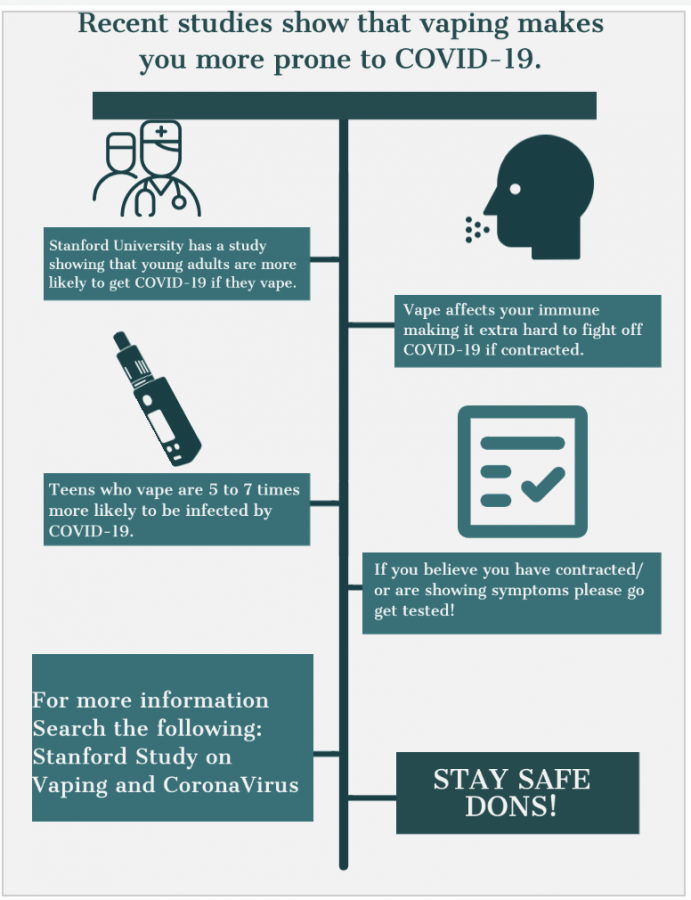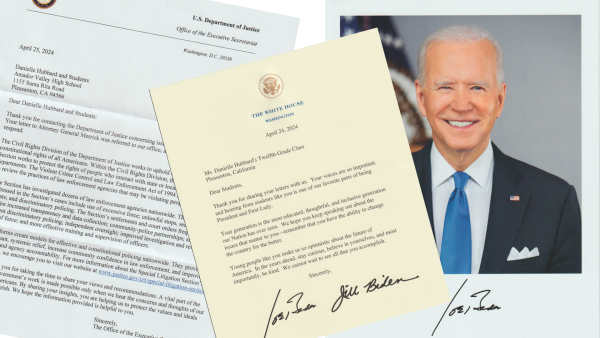Recent studies show that vaping makes you more prone to COVID-19
October 4, 2020
There has been a recent study undergone by Stanford University that reveals that young people that JUUL are more likely to get COVID -19.
“San Francisco showed that vaping significantly increases the likelihood of a COVID-19 diagnosis among young people aged 13 to 24 in the US,” said Queen’s University Belfast Lecturer Deirdre Gilpin.
JUUL puts harmful chemicals inside your body and goes directly to the lungs, which causes your immune system to slowly grow weaker. COVID-19 also affects your lungs and attacks your immune system.
“I think it will help some people stop and because they’ll realize the harm it’s doing to their bodies, ” said Bella Wiley (‘21).
Your immune system is what is going to help you fight this virus; if you lack a strong immune system because of vaping, the virus could be fatal, for people of all ages.
Beneath the Surface: The Risks of Covid-19
“This is unfortunate for the people who vape, but they know it’s bad for them regardless of COVID things so it’s disappointing that they would let their body go through that,” said Natalie O’Sullivan (‘22).
Big tobacco companies like JUUL have been targeting young adults and teenagers for many years now. There have been numerous lawsuits against JUUL. Young adults have been addicted, hospitalized, and now more at risk for COVID-19.
“I feel like this will maybe scare nicotine users a little bit and stop their bad habits,” said Miles Shaw (‘21).
All of this new information should strike some fear into young people that vape. Public health needs to shift its way of bringing this new information to life.
“The research concluded that teens who used e-cigarettes (“vape”) were found to be five to seven times more likely to be infected by Covid-19 than those who did not use e-cigarettes,” said Main Street Law Firm.
The number of young people that vape and don’t know about this information could harm them in the future. It should include the dangers of vaping itself and how it could possibly make you five to seven times more likely to get COVID-19.
For more information, please visit the Stanford study itself.













![The outgoing EICs [left to right] Zenil Koovejee, Aileen Hu, Ritika Gupta, Zaynah Shah, and Audrey Combs take a picture with journalism advisor Wendy Connelly to commemorate their last banquet.](https://www.amadorvalleytoday.org/wp-content/uploads/2024/05/458E2D9A--600x451.jpg)


Concerned Student • Oct 11, 2020 at 4:53 am
I find it a bit offensive that you didn’t interview any students who vaped. There are two sides to every story but the mainstream media (as usual) only shows one side. Maybe this school is so depressing that we need to consume nicotine to function?
A concerned student